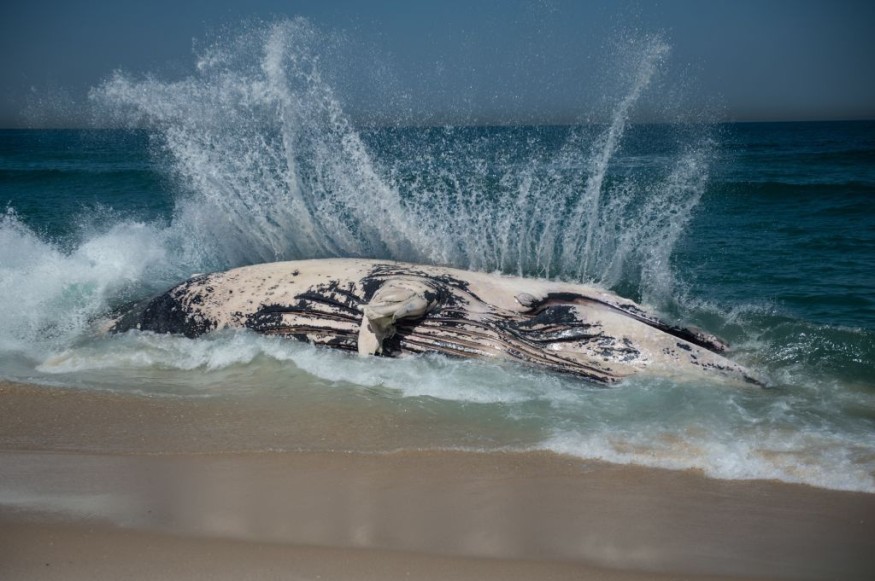Sharks were captured on video ripping apart a humpback whale off the Australian coastline.
The prevailing number of members in the swarm is at least 60, but witnesses in the area reportedly claimed that there could be potentially more than 100 sharks.
The drone footage highlights the common phenomenon of shark scavenging behavior on whale carcasses worldwide.
However, the video allowed a large number of audiences to witness the spectacle, which is significant since scientists claimed that observation of such events is almost like a once in a lifetime opportunity.
Whale Carcass Drone Footage

The video was originally posted on Instagram under the user jindys_travels on May 15.
The drone footage was filmed by fisher John Cloke along with Indy Crimmins off the waters of Norman's Beach near Albany, Western Australia.
In the video, multiple sharks were surrounding the large humpback whale carcass as part of their daytime buffet, as indicated in the Instagram post and which was published over a week after the remarkable sighting.
The feeding frenzy came after the whale carcass washed up off the coast of Albany, specifically on the south coast of Western Australia.
Shark Swarm
Cloke reportedly could not count the number of sharks and told ABC News that there are probably 100 sharks around the carcass.
The overall movement and number of sharks can be seen in the footage as the drone zoomed out.
The footage was captured while Cloke and Crimmins were camping at the beach and noticed a large splash floating on the water with birds also flocking around it.
The humpback whale (Megaptera novaengliae) had a length of 49 feet (15 meters).
Ocean Scavengers
A detailed view of such a phenomenon like the viral video footage showing the sharks and other scavengers feeding on dead whales does not occur frequently.
However, experts claimed that the event is actually common, according to Live Science.
According to Dr. Steve Taylor, a research scientist at the Department of Primary Industries and Regional Development, whale carcasses often attract sharks in large numbers, as cited by ABC News.
Taylor added that as someone who works in the area of shark research, the footage is interesting but it is not that unusual.
Shark Scavenging Behavior
The shark swarm reportedly involved reef shark species such as bronze whalers (Carcharhinus brachyurus), Taylor told ABC News.
Nevertheless, the said humpback whale carcass is not only beneficial for the reef sharks but also to other shark species off the coastal waters.
In a study published in the journal Global Ecology and Conservation in July 2019, researchers explored the area of whale carcass scavenging behavior of white sharks (Carcharodon carcharias) and tiger sharks (Galeocerdo cuvier).
The scientists used the east coast of New South Wales as a site for related incidents involving the carcass of a sperm whale (Physeter microcephalus) in 2015, a fin whale (Balaenoptera physalus) in 2018, and another humpback whale in 2018.
The research acknowledges that sharks, in general, are known for their scavenging behavior toward whale carcasses but observations are rare.
However, the scientists used references from primary literature which says shark scavenging behavior depends on the whale carcass and species of shark present in the area.
© 2025 NatureWorldNews.com All rights reserved. Do not reproduce without permission.





